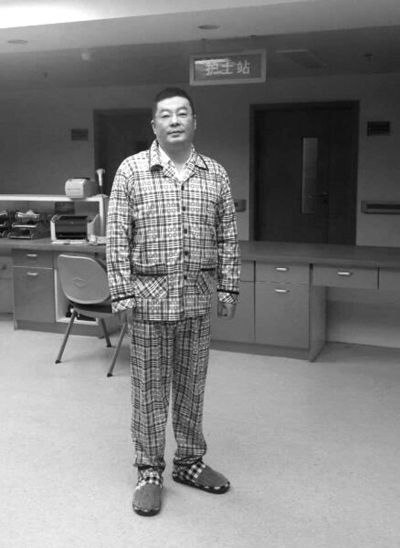Leukemia patient prosecuted for buying pills overseas
- By Zhang Lulu
 0 Comment(s)
0 Comment(s) Print
Print E-mail China.org.cn, December 22, 2014
E-mail China.org.cn, December 22, 2014
More than 300 leukemia patients petitioned recently for the release of a fellow patient who has been charged with helping them buy cheap pills overseas. The man's arrest and prosecution underscores the problems in China's laws and practices regarding medical treatment.
 |
|
Lu Yong. |
The defendant, Lu Yong, was diagnosed with chronic myelocytic leukemia in 2002. He was prescribed Gleevec, a drug produced by Swiss drug-maker Novartis, which cost 23,500 yuan (US$ 3,775) per month, far too expensive for average Chinese families. Lu was even more depressed since the expenses of treating leukemia are not covered by China's medical insurance system.
Lu later found out that India produced a generic drug which was comparable to Gleevec but which cost only 4,000 yuan, about 17 percent of the cost of Gleevec. He took the medicine himself and found it effective. Later, Lu began helping several thousand fellow patients buy the drug, since the purchasing process was difficult and some patients were not able to fill out the English purchase forms.
Lu's actions came to the attention of local public security in 2013. This July, investigations began against him for selling fake drugs and for breaching the law governing national management of credit cards (Lu bought a credit card online in 2011 to do the transactions). The case is now in legal proceedings.
Controversy
More than 300 fellow patients recently signed a petition asking the local authorities to exempt Lu from criminal punishment. One patient surnamed Guo wrote, "Lu Yong saved our lives…The country does not include the expenses of treating leukemia into the national medical insurance system, so we have to depend on ourselves. We can't sit and die!"
The prosecutor said that drugs are deemed fake under the current Chinese legal system as long as they are not approved by the drug administration.
But Ruan Qilin, a professor at China University of Political Science and Law, argued that although Lu's violation of the drugs-related law is deemed a criminal act according to the interpretation of China's highest court, the Supreme People's Court, it in fact merely constitutes a violation of administrative law, which often entails less serious punishment.
The outdated laws should be modified, Ruan said.
Zhuang Yiqiang, the deputy secretary general of the Chinese Hospital Association, said that overseas drugs in China are indeed more expensive than they are in foreign countries as a result of tariffs and the costs of distribution. While Indian and Chinese drug authorities technically allow domestic pharmaceutical companies to produce drugs without the permission of the original drug maker in case of national emergency or for public interest, Zhuang says that China has never permitted this in practice while Indian authorities frequently do so.
However, the country should consider the question of whether to include costly treatment for diseases like leukemia into the national health insurance system, Zhuang added.






Go to Forum >>0 Comment(s)